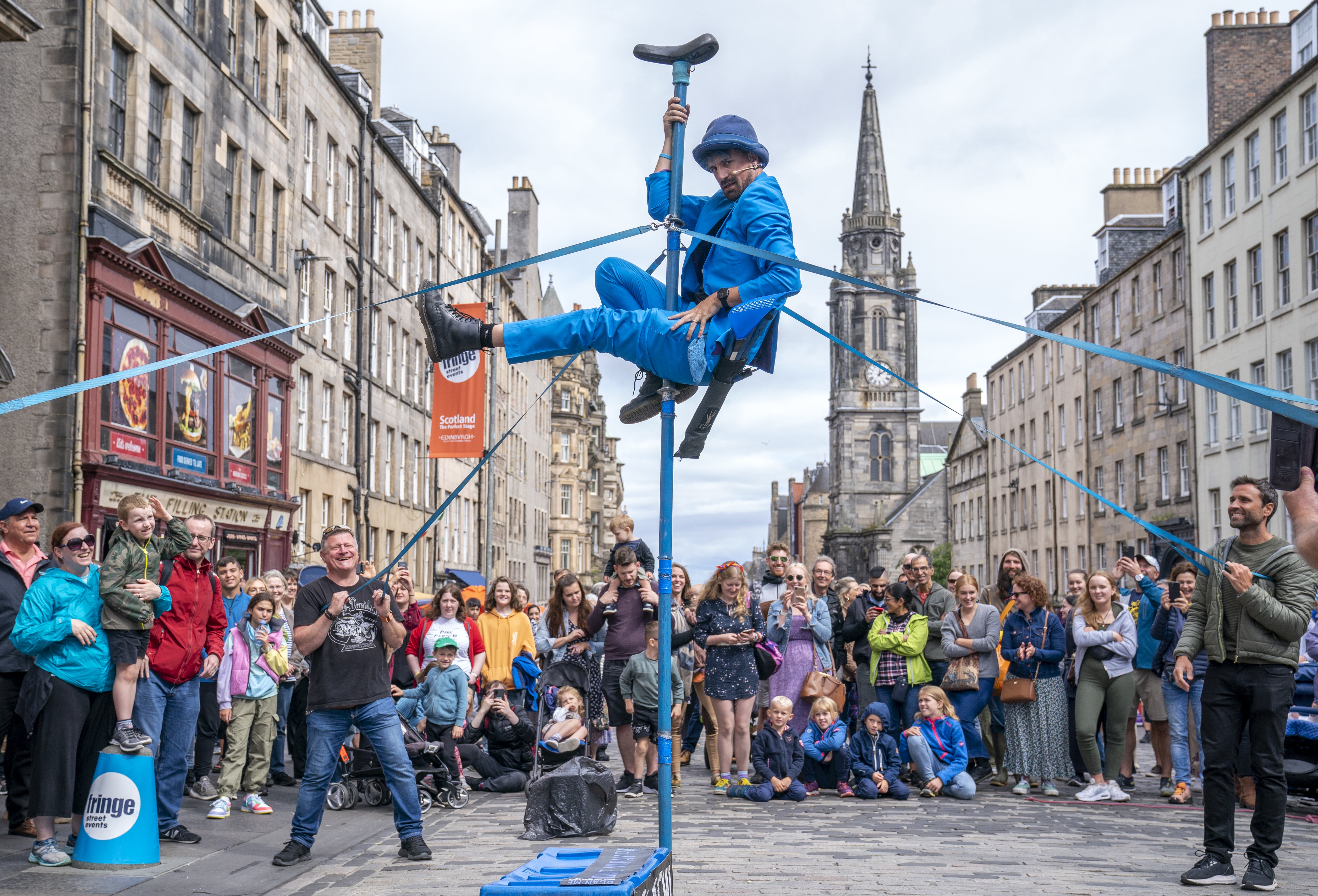I won a game show, but even that wasn’t enough to cover performing at the Edinburgh Fringe

My marmalade dropper of the week came after reading The Independent’s report into the staggering costs of taking a show to the Edinburgh Fringe Festival, which kicked off its 78th iteration yesterday. Six and a half grand in accommodation costs alone for the university revue, The Leeds Tealights (excellent name)!
It highlights the most worrying culture of “extract, don’t invest” that exists around its future stars, with minimal government or private investment – despite the Fringe flogging more tickets than any event bar the Fifa World Cup and Olympics – but maximum expectation of scooping up a winner for Netflix or the Beeb. These don’t appear overnight: it takes opportunity.
After graduating in 2004, I packed in my glamorous temp job in a meatpacking factory and drove a van up the A1 to Edinburgh. Two friends and I had won best show at our university drama festival and were ready to spend a month showing it off to – well, literally anyone we could drag in off the street.
While avoiding my finals revision a few months earlier, I had auditioned for, and unexpectedly won, The Weakest Link: boom, an extra £1000 for the Fringe. Even in 2004, and with accommodation at £100 a week each, it was all gone by the end of the festival.

One of those friends became a teacher and later invited me to reprise a university role in one of their Edinburgh shows – I was a 24-year-old playing a middle-aged professor with terminal cancer, classic Fringe. Can I recommend getting a major public school to back your production, by the way? We stayed in a vast townhouse lent by a parent, and the school covered the production costs.
I joke because my Edinburgh jaunts were done with luck and connections – and as an amateur. Every year, I’ve seen performers graft for months to create, and pay for, shows, publicity, and eyewatering accommodation. Does any other industry have a month-long money pit of stress that is considered so essential for career progression?
“I am wishing I hadn’t done it this year,” says one nationally touring comedian. “It is so quiet, and I’ve only sold 20 tickets, which I am contemplating while lying in my single bed in my student accommodation cell. If it doesn’t sell, then I owe the venue two grand.”
“I’m doing my debut Edinburgh in 2027, as that is how long I need to save up for,” says the stand-up comic, farmer and trainee vet, Liz Johnson. “I know it’s a loss leader, and I’m not even sure it will help my comedy. I’m more likely to get a stye than win an award.”
Performers use every trick in the book to reduce costs, from crowdfunding their work to performing at the Free Fringe, which doesn’t charge performers and audiences pay by donation rather than ticket cost. Yet even locals still run up significant costs from promoting their work.
“I keep my shows simple, but my costs continue to range between £5,000 to £7,000 each year,” says Edinburgh resident Nicole Nadler, who is performing her show, Exposure Therapy, at Greenside @ George Street. “Imagine adding travel and accommodation to that?”
Even attending as a spectator is expensive. When I took my husband to his first Fringe 10 years ago, we upgraded from my usual accommodation – a student room paid for the moment bookings opened – to Edinburgh’s easyHotel, which blessed us with an abandoned mattress on the stairs. A single night in this classy joint will now cost you £150 in August. Don’t even look at the last-minute cost of a smarter hotel. Add ticket cost, and it’s no wonder people have the idea that people in the arts are floating around on clouds of Botox coated in gold.
I didn’t have the determination to become a professional performer. But without the graft and optimism of those who do, where are we? Saturday night schedules are filling up with repeats and quiz shows. Many areas of the arts now require the support of a family income, as well as luck and talent. If we’re not careful, we will end up with a monotone culture that is no longer the envy of the world.
The pleasure of the Fringe has always been that you could stumble across anyone doing goodness knows what. Performers need to see shows outside their niches. And we need to see them to remind ourselves of the sheer joy, humour, and surprise of human creativity. On a more money-minded level, the broad possibility of the Fringe is crucial to keep the quality up for everyone to be inspired by. Otherwise, it’s just going to be the amateurs like me, coming up for a week to cosplay as an artist before going back to our real lives. And that really would make a rubbish night’s TV.
www.edfringe.com


:max_bytes(150000):strip_icc()/Tina-Fey-and-Jon-Hamm-040725-9b4fb65ac84f49cc9e0be3e42146af8e.jpg?w=390&resize=390,220&ssl=1)

